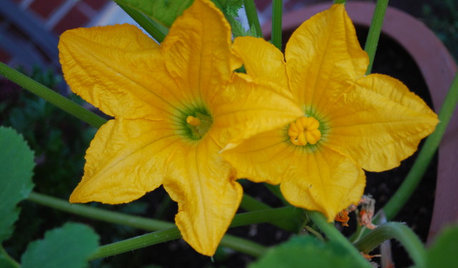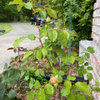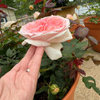spraying and skin cancer
henry_kuska
14 years ago
Related Stories

MATERIALSInsulation Basics: What to Know About Spray Foam
Learn what exactly spray foam is, the pros and cons of using it and why you shouldn’t mess around with installation
Full Story
HEALTHY HOMEWhat's the Deal With Radon?
Get the facts on testing for this cancer-causing gas — and how to make your home safe if it shows up
Full Story
ROOM OF THE DAYRoom of the Day: Making Way for a New Life in Austin
With cancer behind her, a Texas homeowner gets rid of boxes and clutter in her living room too
Full Story
GARDENING GUIDESGreat Design Plant: Beavertail Prickly Pear Wows With Color
The dazzling magenta flowers of this cactus will snag your heart — just beware the bristles that can stick in your skin
Full Story
DECORATING GUIDESHemp, Hemp, Hooray! This Superplant May Be Legal Again in the USA
Hemp products are durable, sustainable, antibacterial and much more. Will the plant finally get the status it’s due in the States?
Full Story
EDIBLE GARDENSSummer Crops: How to Grow Squash
Almost foolproof and with cheerful flowers, squash comes in a wide range of varieties to plant in spring
Full Story
PETSHow to Help Your Dog Be a Good Neighbor
Good fences certainly help, but be sure to introduce your pup to the neighbors and check in from time to time
Full Story
KITCHEN DESIGNHouzz Call: What’s Cooking in Your Kitchen?
Most of us turn to recipes, videos and culinary shows when we cook. Where do you set your cookbook, tablet or TV screen?
Full Story
Houzz Call: What Gives You the Creeps at Home?
Halloween horror got nothing on your basement, attic or closet? Show us that scary spot you steer clear of
Full Story
KITCHEN DESIGNStandouts From the 2014 Kitchen & Bath Industry Show
Check out the latest and greatest in sinks, ovens, countertop materials and more
Full Story







zeffyrose
serenasyh
Related Discussions
Skin cancer on nose
Q
Recurrence of DH's skin cancer. Don't know where to turn
Q
Squamous cell skin cancer- where to go
Q
Need doctor info on facial skin cancer..Part Two
Q
Zyperiris
roseman
jim1961 / Central Pennsylvania / Zone 6
collinw
york_rose
lucretia1
jim1961 / Central Pennsylvania / Zone 6
buford
Jeannie Cochell
scottys
york_rose
rosesinny
buford
sandy808
buford
henry_kuskaOriginal Author
dove_song
buford
henry_kuskaOriginal Author
henry_kuskaOriginal Author
scottys
henry_kuskaOriginal Author
buford
serenasyh
jim1961 / Central Pennsylvania / Zone 6
buford
scottys
Zyperiris
petra_gw
Zyperiris
buford
petra_gw
ceterum
henry_kuskaOriginal Author
henry_kuskaOriginal Author
henry_kuskaOriginal Author
scottys
henry_kuskaOriginal Author
sandy808
buford
henry_kuskaOriginal Author
henry_kuskaOriginal Author